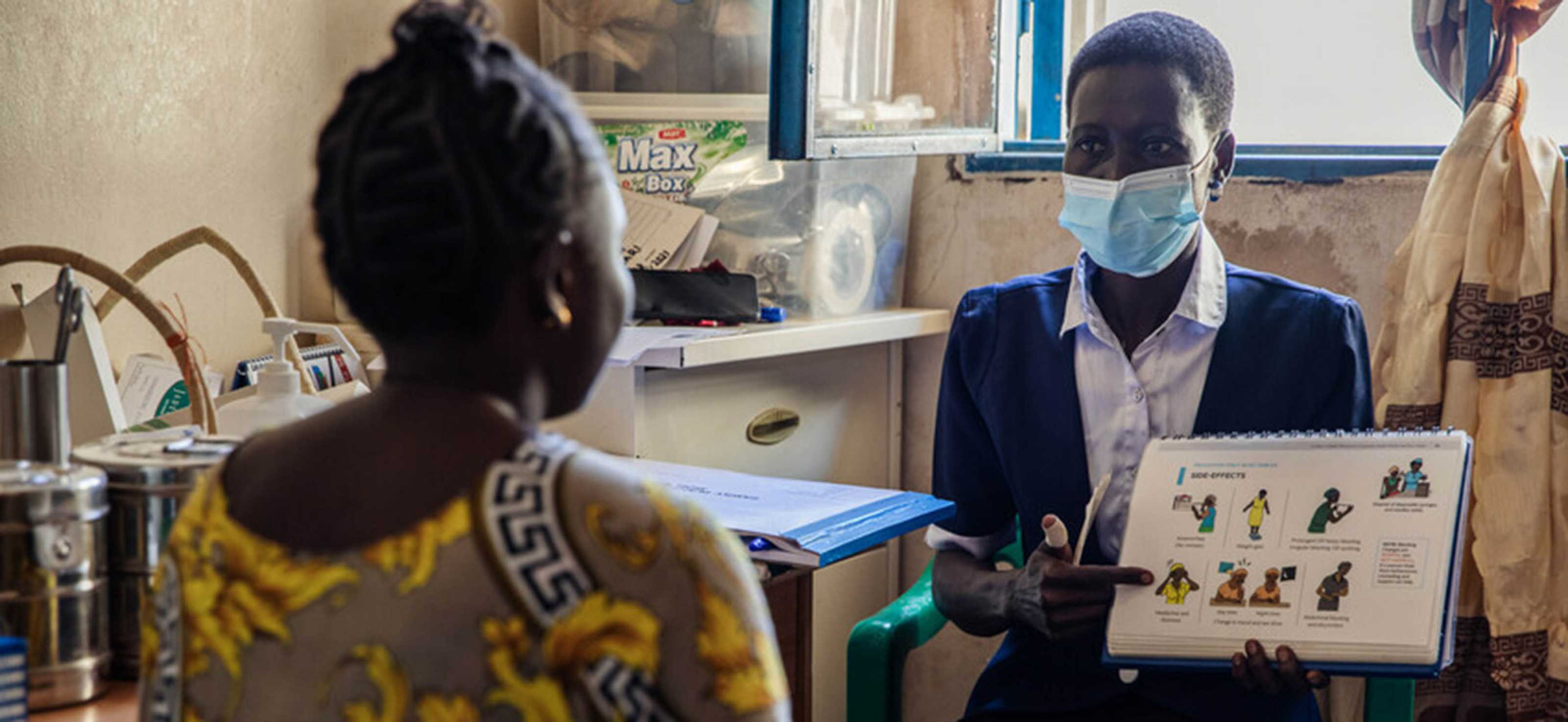Sarah Walah, 26, has lived with a physical disability since she was in a traffic accident several years ago near her home in Juba, South Sudan. She has two children from different fathers, but neither would marry her because of her disability.
"They think if I give birth again the child will have disabilities," Sarah laments, "but me, it has not affected me!" The sole wage earner in her family, she provides for herself and her children by working as a cook and selling Sudanese tamiya — similar to falafel — to make a living.
Empowering women with family planning options
Though Sarah has felt rejected because of her disability, a recent meeting with a health worker trained by Corus World Health left her feeling empowered. After the health worker counseled her on reproductive health and her available options for family planning, Sarah chose a birth control implant to prevent future pregnancies.
"Even with the implant, I still protect myself from HIV, but I feel good knowing I cannot fall pregnant," she says. "Now I can provide better for my children, like if one gets sick or needs money for school."
Education is an important value for Sarah. She says, "I didn't go to school, but I always talk to my children to encourage them to get educated." For Sarah, education means both traditional schooling and understanding how to navigate the world.
"I say, 'Look at me. You don't want to go through what I went through. Take care of yourself, protect yourself,'" she says, in turn empowering her children to take control of their futures.
Helping women plan their families for optimum health and well-being
Corus World Health is dedicated to saving and improving the lives of women like Sarah and their children by improving access to reproductive health services, including family planning.
At Corus World Health, we believe women should have control over if, when and how often they become pregnant in order to plan their families for optimal health and well-being. To this end, our programs counsel hundreds of thousands of women and men on various contraceptive methods, then ensure access to whichever methods they choose — from condoms to birth control pills to intrauterine devices.
Our work in this area spans multiple countries, including South Sudan, the Democratic Republic of Congo, Kenya, Tanzania and others — helping to put control over their health in reach for women everywhere.

